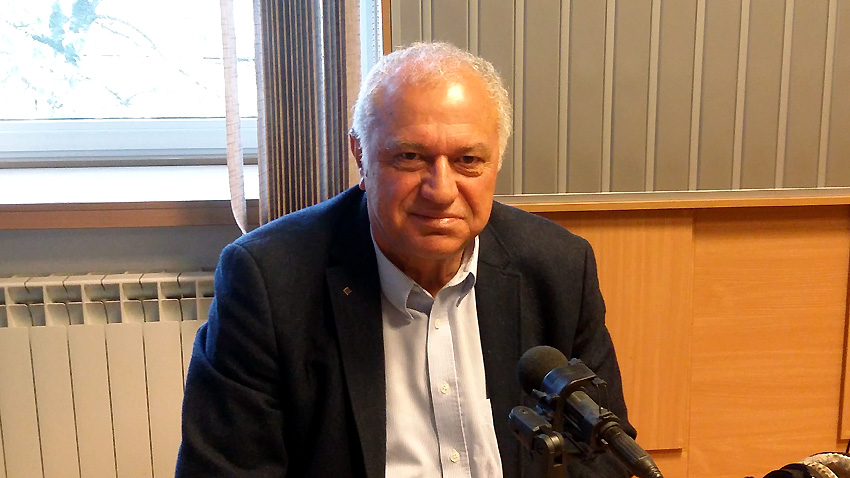Bulgaria enters the European space family which consists of twenty member states. All EU countries except for Bulgaria and Croatia have been participating in the activity of the European Space Agency until now. The Bulgarian government met the long expectations of the local space community. Bulgaria’s membership at the ESA is to enable this country to participate in various European space programs.
Although Bulgaria has strong traditions in the space technologies field, this country was among the last ones to join the European Space Agency. Many governments came up with the excuse that the membership fees ware too high for the state budget. Moreover, when mentioning space research all people find it too abstract and weird against the background of the crisis that loomed in Europe. In fact, we are talking about some very important things in this case such as communication and GPS technologies, GSM networks, satellites and Internet. Bulgaria has the potential to participate at the Galileo global navigation satellite system and this business is even larger than the petrol and the natural gas one, contends Director of the Space Research Institute with the Bulgarian Academy of Science Professor Petar Getsov. This is so, because all cars and mobile phones are to be equipped with a GPS system.
 How exactly Bulgaria will benefit from its membership at the European Space Agency?
How exactly Bulgaria will benefit from its membership at the European Space Agency?
“We are joining the European space and aviation society which develops high technologies and we can participate in all projects of the ESA”, says in an interview for Radio Bulgaria Professor Getsov. Both the Bulgarian science and business are interested in such membership. Most of the projects of the European Space Agency are linked with business, because they require communications, navigation technologies and many other space applications. The projects are well financed by the European Commission, so this is a very serious step towards the accession to the society of the high-tech countries.
Each year ESA launches programmes worth over EUR 3 billion and no Bulgarian companies and scientists had access to these funds until recently. The membership fees are to the tune of EUR 1.2 million. What Bulgaria will receive in return?
“85% of the money goes back to the state through projects carried out jointly with the ESA, Bulgarian companies and local scientific organizations. So, nearly EUR 1 million goes back to the Bulgarian science, business, manufacture, to the small and the medium enterprises. We can not speak of a financial loss, bearing in mind our strong traditions in this sphere. The full amount of the membership fees can go back to Bulgaria. When the actual partnership begins, we would like to use more money than we actually give”
Bulgaria has long ago entered into space relations with many European countries.
“We have been collaborating with many EU member states for many years. Membership, however, provides opportunities for other types of participation. We did not have access to many projects launched by the European Space Agency simply because we are not members. However, a lot of things depend on our activity and capacity. We should launch a Bulgarian National Space Program which includes the main spheres of Bulgarian participation. We need to assess the ability of the Bulgarian companies to participate in given space projects. In other words, we need to create a space program and then think of joint activities with Europe in this sphere.”
Where exactly is Bulgaria’s strength?
“We have traditions in space physics, the transfer of airspace technologies and the research of our planet from space. We have launched over 100 projects over the recent years and over thirty apparatuses and systems are now onboard the International Space Station”
English version: Kostadin Atanasov
Bulgarian studies are highly valued at the Bogdan Khmelnitsky State Pedagogical University in the Ukrainian city of Melitopol. So it comes as no surprise that the university is hosting the latest edition of the International Bulgarian Studies Readings,..
"You say you are Bulgarian, but you do not know Bulgarian" – this reproach from officials in Bulgaria has been faced by quite a few by our compatriots from the historical Bulgarian communities around the world. One of them is Bledar Alterziu from..
The survival of millions of people around the world, living in conditions of war, hunger, disease and immense despair, is at stake every day. We often approach immigrants from such countries with hostility rather than understanding. What they have..
Modernizing critical thinking skills, fact-checking skills and media literacy are essential for society, especially for young people in Bulgaria - the..
"You say you are Bulgarian, but you do not know Bulgarian" – this reproach from officials in Bulgaria has been faced by quite a few by our compatriots..
The survival of millions of people around the world, living in conditions of war, hunger, disease and immense despair, is at stake every day. We often..

+359 2 9336 661
